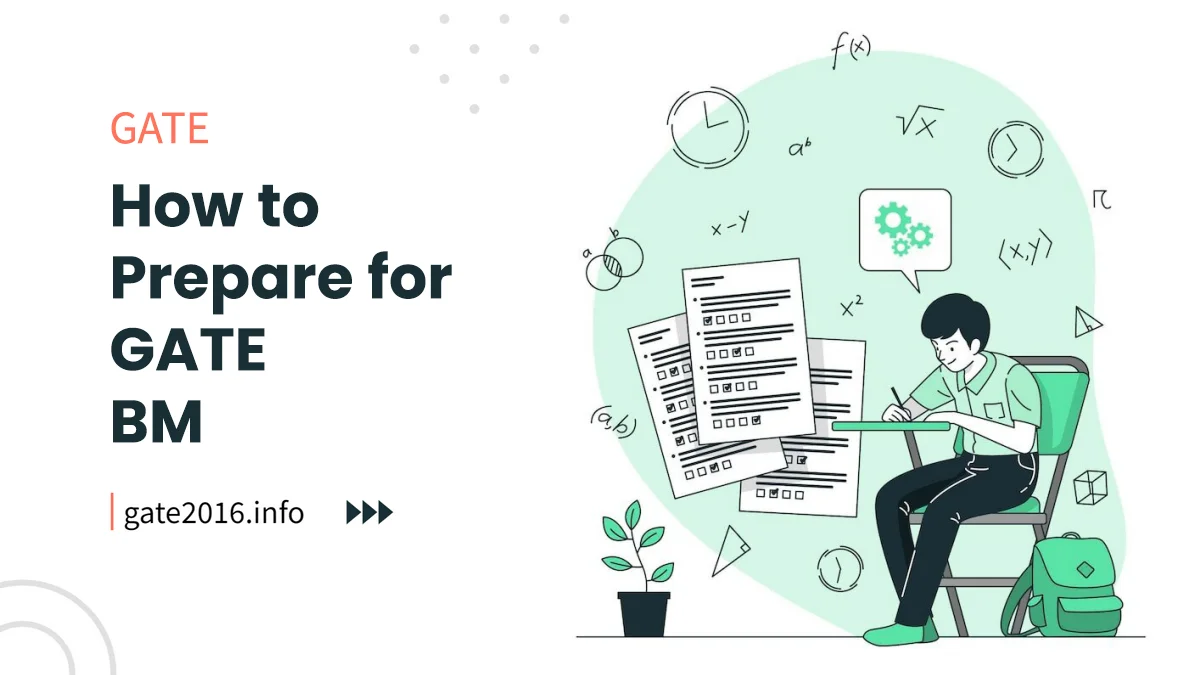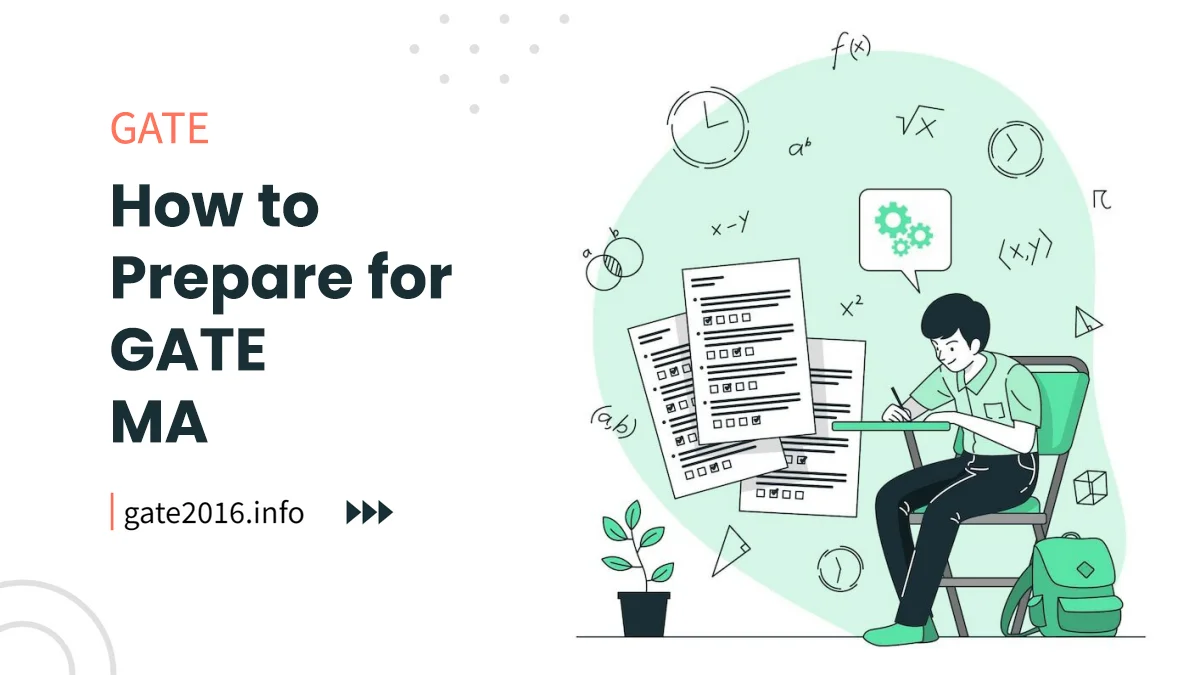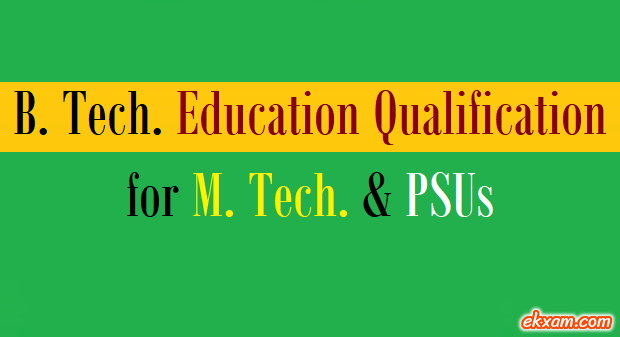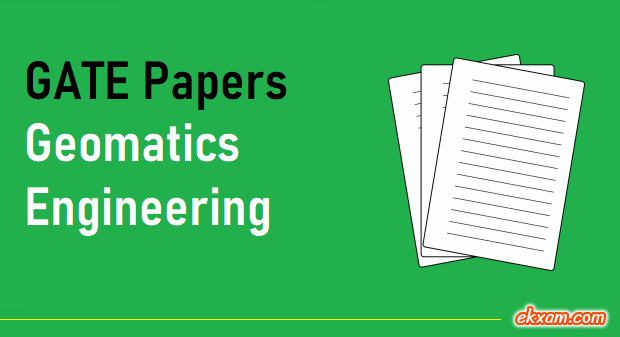Advertisements
Ratings

GATE 2024 BM Preparation – The Graduate Aptitude Test in Engineering (GATE) is a crucial examination for individuals aspiring to pursue advanced studies and career opportunities in the field of bio-medical engineering.
A well-structured and effective preparation strategy is essential for success in GATE Bio-medical Engineering.
This comprehensive guide outlines a step-by-step plan to help candidates navigate their preparation journey with confidence.
Contents
- 1. Introduction to GATE Bio-medical Engineering
- 2. Understanding the GATE Bio-medical Engineering Syllabus
- 3. Creating a Well-Structured Study Plan
- 4. Selecting the Right Study Materials
- 5. Mastering Core Concepts
- 6. Solving Numerical and Conceptual Problems
- 7. Reviewing Previous Years’ Question Papers
- 8. Taking Mock Tests
- 9. Efficient Time Management Strategies
- 10. Effective Revision Techniques
- 11. Staying Updated with Bio-medical Engineering Advancements
- 12. Managing Exam Stress
- 13. Final Weeks’ Preparation Strategy
- 14. Approaching Exam Day with Confidence
- 15. Reflecting on the Exam and Planning Ahead
- Conclusion: Excelling in GATE Bio-medical Engineering
- Additional Resources and References
- GATE Bio-medical Engineering Guidance
- GATE Bio-medical Engineering Preparation FAQs
- GATE Total Information & Guidance
1. Introduction to GATE Bio-medical Engineering
GATE Bio-medical Engineering serves as a gateway to advanced education and lucrative career paths in the domain of medical technology and research.
Proper preparation is the cornerstone of achieving excellence in this competitive examination.
2. Understanding the GATE Bio-medical Engineering Syllabus
GATE Bio-medical Engineering syllabus covers a wide spectrum of subjects, ensuring a comprehensive understanding of the field.
Below, we break down the syllabus into core subjects and key topics:
Table 1: GATE Bio-medical Engineering Syllabus Breakdown
| Subject | Key Topics |
|---|---|
| Engineering Mathematics | Linear algebra, Calculus, Differential equations, Probability and statistics |
| Anatomy and Physiology | Human anatomy, Physiology of organ systems, Neurophysiology |
| Medical Instrumentation | Transducers, Biopotential amplifiers, Imaging systems |
| Biomechanics and Biomaterials | Biomechanics of human tissues, Biomaterial properties |
| Medical Imaging Systems | X-ray imaging, Ultrasound imaging, Nuclear imaging |
| Signal Processing | Digital signal processing, Fourier analysis, Filter design |
3. Creating a Well-Structured Study Plan
A systematic study plan forms the bedrock of GATE Bio-medical Engineering preparation.
Adhering to a structured schedule helps in effectively covering all subjects and topics:
Table 2: Sample Study Plan
| Week | Subjects/Topics | Time Allocation |
|---|---|---|
| 1-2 | Engineering Mathematics | 10 hours/week |
| 3-4 | Anatomy and Physiology | 12 hours/week |
| 5-6 | Medical Instrumentation | 15 hours/week |
| 7-8 | Biomechanics and Biomaterials | 10 hours/week |
| 9-10 | Medical Imaging Systems | 12 hours/week |
| 11-12 | Signal Processing | 8 hours/week |
4. Selecting the Right Study Materials
Choosing the appropriate study materials is pivotal for comprehensive GATE Bio-medical Engineering preparation.
Opt for a combination of textbooks, reference materials, online resources, and mock tests:
Table 3: Recommended Study Resources
| Subject | Books | Online Resources |
|---|---|---|
| Engineering Mathematics | “Advanced Engineering Mathematics” by Erwin Kreyszig | Khan Academy, Coursera Mathematics courses |
| Anatomy and Physiology | “Human Anatomy & Physiology” by Elaine N. Marieb | NPTEL’s Anatomy and Physiology courses |
| Medical Instrumentation | “Introduction to Biomedical Equipment Technology” by Joseph J. Carr | Coursera’s Biomedical Instrumentation courses |
| Biomechanics and Biomaterials | “Biomechanics: Concepts and Computation” by C. David Fortuna | NPTEL’s Biomechanics courses |
| Medical Imaging Systems | “Medical Imaging Physics” by William R. Hendee | Coursera’s Medical Imaging courses |
| Signal Processing | “Digital Signal Processing” by Alan V. Oppenheim | NPTEL’s Digital Signal Processing course |
5. Mastering Core Concepts
Solidifying the understanding of core concepts is crucial for GATE Bio-medical Engineering success.
Focus on key principles within each subject:
Table 4: Mastering Core Concepts
| Subject | Key Concepts |
|---|---|
| Anatomy and Physiology | Human body systems, Cell physiology, Neural communication |
| Medical Instrumentation | Measurement principles, Signal conditioning, Data acquisition |
| Biomechanics and Biomaterials | Stress-strain relationships, Material selection |
| Medical Imaging Systems | Imaging modalities, Radiation safety, Image reconstruction |
| Signal Processing | Filtering techniques, Spectral analysis, Feature extraction |
6. Solving Numerical and Conceptual Problems
A well-rounded preparation involves practicing both numerical and conceptual problems.
This aids in developing problem-solving skills and comprehensive understanding:
Table 5: Enhancing Problem-Solving Skills
| Concept/Topic | Problem-Solving Practice |
|---|---|
| Medical Instrumentation | Calculations related to sensors, Signal amplification |
| Biomechanics and Biomaterials | Stress-strain calculations, Material properties |
| Medical Imaging Systems | Image reconstruction calculations, Safety assessments |
| Signal Processing | Digital filter design, Spectral analysis |
7. Reviewing Previous Years’ Question Papers
Solving previous years’ question papers is invaluable for GATE Bio-medical Engineering preparation.
It provides insights into question patterns, difficulty levels, and exam trends:
Table 6: Benefits of Solving Previous Years’ Papers
| Benefit | Description |
|---|---|
| Understand Question Types | Identify common question patterns and formats |
| Time Management | Practice completing the paper within time |
| Exam Pattern Familiarity | Get comfortable with GATE question patterns |
| Self-Assessment | Evaluate your preparation level and progress |
8. Taking Mock Tests
Taking mock tests under simulated exam conditions is vital for building confidence and improving time management:
Table 7: Benefits of Taking Mock Tests
| Benefit | Description |
|---|---|
| Exam Simulation | Replicate the actual exam environment |
| Time Management Improvement | Practice allocating time to different sections |
| Confidence Building | Boost your confidence before the actual exam |
| Identifying Weak Areas | Identify areas needing further improvement |
9. Efficient Time Management Strategies
Managing time during the exam is crucial to attempt all questions.
Develop a time management strategy to allocate time to different sections based on their weightage:
Table 8: Time Management Strategy
| Section | Recommended Time Allocation |
|---|---|
| Engineering Mathematics | 15 minutes |
| General Aptitude | 15 minutes |
| Subject-specific Sections | 75 minutes each |
10. Effective Revision Techniques
Regular revision is essential for retaining information.
Use structured revision techniques to reinforce your knowledge:
- Develop a Revision Schedule: Allocate time for revisiting key topics and concepts regularly.
- Create Concise Notes: Condense important information into easy-to-review notes and flashcards.
11. Staying Updated with Bio-medical Engineering Advancements
Staying current with industry developments is essential:
- Follow Research Publications: Subscribe to bio-medical engineering journals, publications, and research articles.
- Engage in Online Communities: Participate in bio-medical engineering forums and discussions to stay informed.
12. Managing Exam Stress
Managing stress effectively is crucial for maintaining focus and composure during preparation:
- Practice Relaxation Techniques: Engage in mindfulness, meditation, and deep breathing exercises.
- Balanced Routine: Maintain a balanced routine with study time, breaks, exercise, and relaxation.
13. Final Weeks’ Preparation Strategy
As the exam date approaches, focus on targeted revision and improving weak areas:
- Intensive Revision: Dedicate more time to challenging topics and subjects.
- Solve Mock Tests: Practice additional mock tests to simulate the exam environment.
14. Approaching Exam Day with Confidence
On the day of the exam, stay calm and follow these strategies:
- Read Instructions Carefully: Understand the question paper pattern and instructions.
- Manage Time Effectively: Allocate time wisely to different sections based on their importance.
15. Reflecting on the Exam and Planning Ahead
After the exam, assess your performance and plan your next steps:
- Evaluate Performance: Analyze how you performed in different sections and topics.
- Identify Areas for Improvement: Recognize strengths and areas that need further enhancement.
Conclusion: Excelling in GATE Bio-medical Engineering
Preparation for GATE Bio-medical Engineering requires dedication, thorough planning, and a structured approach.
By following this comprehensive guide, aspiring candidates can enhance their chances of excelling in the examination and making significant contributions to the field.
Additional Resources and References
For additional resources and references, explore the recommended textbooks, online courses, and practice papers mentioned in this guide.
These resources will further enhance your understanding and preparation for the GATE Bio-medical Engineering exam.
GATE Bio-medical Engineering Guidance
- How to Prepare for GATE Bio-Medical Engineering: A Comprehensive Guide
- GATE BM Syllabus 2025: Biomedical Engineering
- GATE BM Previous Year Solved Papers – (2023-2020)
GATE Bio-medical Engineering Preparation FAQs
What is GATE Bio-medical Engineering (BM)?
GATE BM is an examination conducted by the Indian Institute of Technology (IIT) for admission into postgraduate programs in Bio-medical Engineering and related fields.
It evaluates candidates' knowledge and understanding of bio-medical concepts and serves as a gateway to higher education in this specialized field.
What are the important subjects to focus on for GATE Bio-medical Engineering preparation?
Key subjects to focus on include medical instrumentation, bioinformatics, medical imaging, biomaterials, physiology, and signal processing.
To ensure comprehensive coverage, refer to the official GATE syllabus for Bio-medical Engineering.
How should I prepare for the GATE BM exam?
Effective preparation involves creating a study plan based on the GATE syllabus. Utilize standard textbooks, reference materials, and online resources for each subject.
Practice solving previous years' question papers and mock tests to become familiar with the exam pattern and refine your problem-solving skills.
Are there any recommended books or resources for GATE Bio-medical Engineering preparation?
Yes, some recommended books and resources include:
- 'Introduction to Biomedical Engineering' by John Enderle, Joseph Bronzino
- 'Bioinformatics Algorithms: An Active Learning Approach' by Phillip Compeau and Pavel Pevzner
- 'Principles of Medical Imaging' by Shung and Mayo
- 'Biomaterials Science: An Introduction to Materials in Medicine' by Ratner, Hoffman, and Schoen
- Online courses and lecture videos from reputable institutions and platforms like edX and MIT OpenCourseWare.
What is the exam pattern for GATE Bio-medical Engineering, and how should I approach it?
GATE BM typically consists of multiple-choice questions, multiple-select questions, and numerical answer type questions.
Questions cover various aspects of bio-medical engineering, including theory and practical applications.
Start by answering questions you are confident about and manage your time efficiently. If you encounter challenging questions, consider skipping them and returning later.
Accuracy and a strong grasp of core bio-medical engineering concepts are essential for success in the exam.
Recent Posts
- AAI Through GATE 2024 – JE (Junior Executive)
- M Tech and MS Programs Through GATE and GRE: Navigating Postgraduate Options
- Job Opportunities After GATE 2024 in India: What You Didn’t Know!
- BSPHCL Through GATE 2024 – 40 AEE
Related Tags
How to prepare for gate biomedical engineering quora 2024, How to prepare for gate biomedical engineering pdf 2024, gate biomedical engineering syllabus 2024, gate biomedical engineering eligibility 2024, gate biomedical engineering syllabus pdf 2024, gate biomedical engineering notes 2024, gate biomedical engineering mock test 2024, gate biomedical engineering cut off 2024
| GATE (Reasoning & Aptitude & Maths) Books |
| GATE Guide Books |
GATE Total Information & Guidance
Click below given links to get further information.






